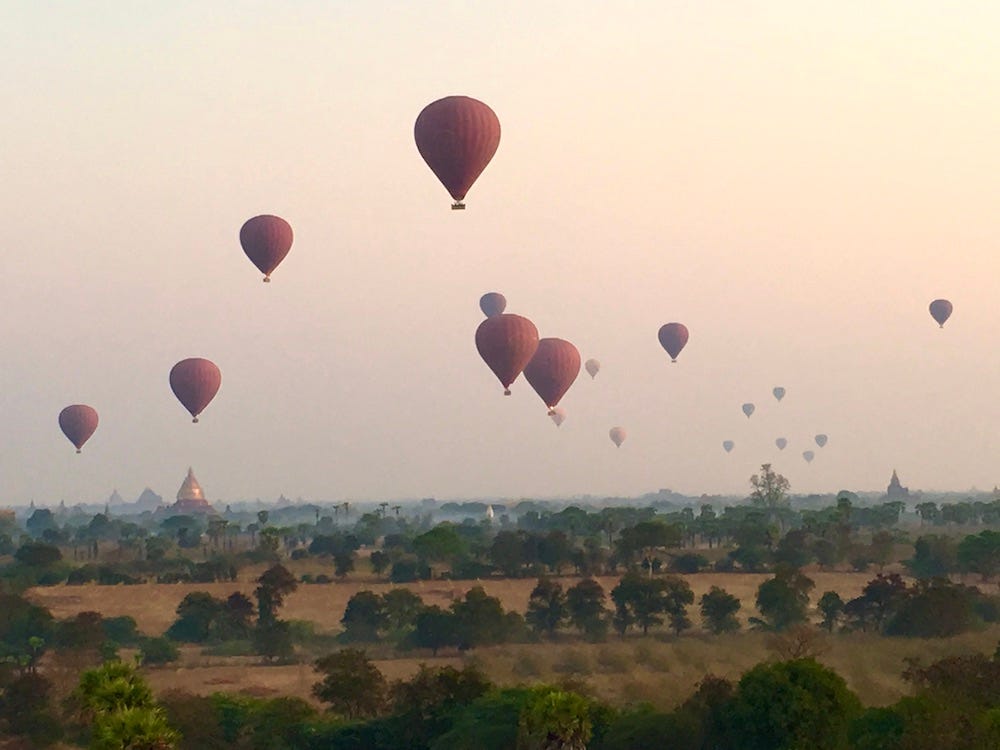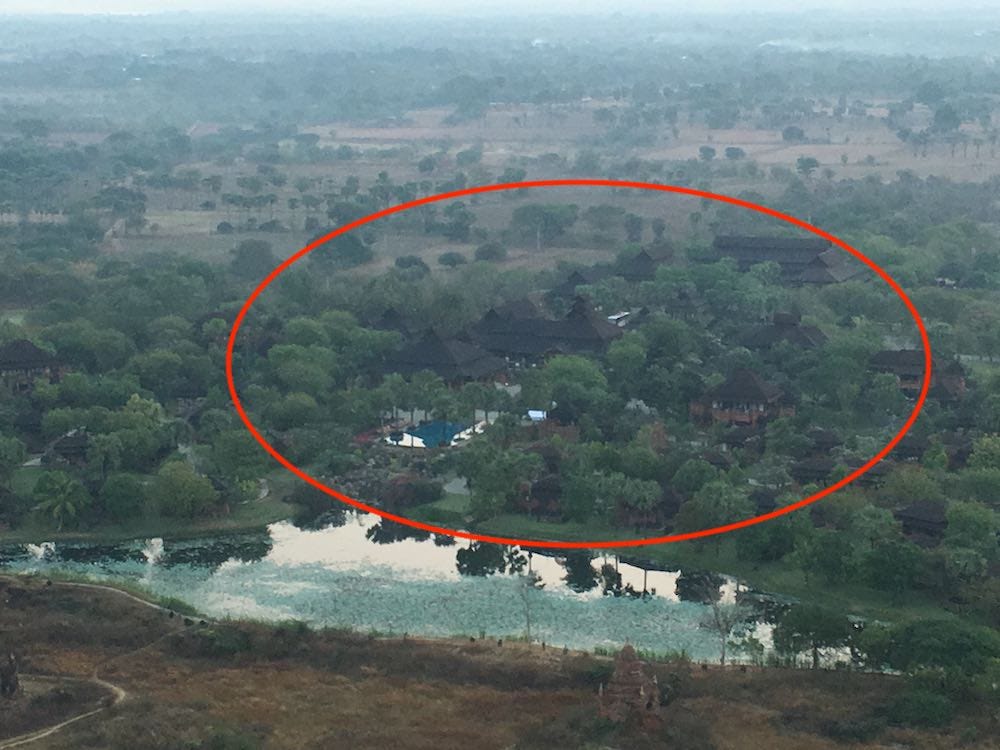5 Essential Skills to Master World Travel After 50 (And Avoid Costly Mistakes)
Expect the unexpected...
I learned about essential travel skills the hard way.
After leaving the UK in 2010, we found ourselves in situations that no guidebook prepared us for!
From navigating Thailand hospitals, to getting scammed in India, and dealing with lost passports in Kuala Lumpur.
These experiences taught me that successful long-term travel goes far beyond just following itineraries or ticking off bucket lists.
Unexpected challenges are likely to pop up when you least expect them and so it’s vital to consider and start mastering a set of essential skills that make life on the road truly enjoyable.
The Truth About Travel After 50
Forget what you've heard about travel being a young person's game.
I honestly believe the real advantages come with age in the forms of more patience, better financial planning, and the wisdom to know what actually matters.
My nomadic dreams started over 14 years ago when we originally left the UK.
They slowed considerably as our daughter attended school in Thailand, but she finally graduated in May this year and we set off again!
However now in my fifties rather than my thirties, and having lived in or visited over 40+ countries, I feel more equipped now than ever to take on the inevitable nomadic challenges that are coming my way! (Apart from my squeaky knees)
Here are some of the specific skills I’ve learned that make the difference between struggling and thriving on the road.
1. Digital Navigation Mastery
The days of hauling around physical maps and guidebooks are long gone. But that doesn't mean you need to be a tech genius.
What you do need is:
Google Maps downloaded offline for every new destination (vital!)
A reliable offline translation app
Basic knowledge of ride-hailing apps in different regions
A reliable VPN that works across the globe
I once arrived in China at 11pm at night having completely forgotten that Google doesn't work there. My VPN saved my bacon and I was able to navigate the metro system back to our hotel. (It also came in very handy when exploring the cities etc over the time we were there.)
2. Smart Packing Psychology
After years of lugging heavy suitcases through countless airports, I’ve learned that packing light is a mindset!
The key is understanding that:
You need far less than you think
Almost everything can be bought locally
A capsule wardrobe works across multiple climates
Comfort trumps style every time
My entire wardrobe now fits in one suitcase, works for everything from beach to business meetings, and takes less than 30 minutes to pack.
3. Money Management on the Move
Nothing ruins travel faster than money stress.
Here's what works:
Multiple cards from different banks (stored separately)
A global banking app like Wise or Revolut that lets you spend in local currency without hidden fees or nasty exchange rate surprises
A solid emergency fund in an easily accessible account (like a travel card with pre-funded money on it)
Knowledge of local money customs (like Vietnam's cash economy)
Always pay in the local currency and if using an ATM, choose local currency to save on extra exchange fees
I learned this after my credit card was blocked in Singapore, and we had to survive for a week on a backup card while sorting it out.
Talking about Singapore, I also learned that unlike Vietnam that requires you carry lots of cash in your pocket, you will need nothing more than your phone and Apple Pay.
If you draw Singapore dollars out before you go, you’ll likely be re-exchanging them on the way home, so learning about local money customs is crucial to get the best bang for your buck and not rack up unnecessary fees.
4. Health & Energy Management
This becomes far more important after 50.
You need:
Insurance that actually covers pre-existing conditions - or if you have a good understanding of healthcare overseas, sack the insurance altogether (apart from repatriation to your home country) and just pay for your treatment. Depending on the issue it could work out cheaper (this is not a recommendation - always due your own due diligence)
A system for managing prescriptions across borders (many countries overseas such as Thailand for example, you can buy most prescription drugs over the counter)
Understanding of local healthcare systems
Energy management strategies for different climates
After dealing with some health issues while in Thailand, I discovered how much better (and cheaper) the healthcare system is in many countries.
I’m from the UK and if I had a medical emergency I’d pick Bangkok or Kuala Lumpur over the UK any day of the week!
Do your research!
5. Accommodation Strategy
Our comfort needs change after 50.
No longer am I happy sleeping on a sofa bed, sharing a bathroom or sleeping in a shared dormitory!
The key is:
Stick to booking sites you know and trust (I use booking.com for almost everything)
Read plenty of recent reviews and only stay in places you like the look of (I rarely stay somewhere graded below an 8 on booking.com)
Book one night initially - if you love it, extend your stay. This does increase the risk of losing the room if it's high season, but it's saved us from being stuck in places we didn't like
For housesitting, always request a video walkthrough before committing
When my Sister & I arrived in Bagan, Myanmar, the accommodation was horrible and out of town. During a hot air balloon trip the next morning I spotted our ideal hotel and because we’d only booked one night, we were able to leave that day without reproach.
We spent the rest of our trip at a dream place with amazing views in the middle of the temple zone!
Common Mistakes to Avoid
These are the big ones I see people make repeatedly:
Trying to recreate their home routine everywhere - this just leads to frustration. Embrace local rhythms instead. For example, trying to go for dinner at 4pm in Spain where everything shuts for siesta is a recipe for stress.
Not building in enough rest days - travel is more tiring than you think. We learned to add a recovery day after every travel day, and at least one full rest day per week. Without this, burnout happens fast.
Assuming everything will work like it does at home - this sets you up for constant disappointment. Internet speeds vary wildly, electricity can be unreliable, and simple tasks often take twice as long.
Underestimating the impact of climate on energy levels - the humidity in Thailand or the heat in Mexico can knock you sideways if you're not prepared. What works in one climate might leave you exhausted in another.
Making Travel Sustainable
Long-term travel after 50 works best when you create a sustainable lifestyle that matches your own rhythm and preferences.
Build your skills gradually.
Start with short trips, test different approaches, and figure out what works for your specific needs.
The goal isn't necessarily to see everything, but to enjoy what you do see while staying healthy, solvent, and sane.
And once you master these skills, the world becomes a lot more accessible than you might think!
Ready to Start Your Nomadic Lifestyle? Here’s How I Can Help You:
Explore my blog, The Working Traveller
Your go-to resource for nomadic travel tips, destination inspiration, and practical advice on making money on the road.Grab my free ebook: 200+ Side Hustles for 50+ Nomads
Packed with ideas to help you fund your travels and live your best life, starting today.Be part of something extraordinary!
Join me as I launch Grey Nomad Co - a brand dedicated to empowering over-50 adventurers with travel products designed just for us. Click here for early access, sneak peeks, and exclusive updates as we build this exciting journey together.Join The Solopreneur Success Formula
My beginner-friendly course helps 50+ adventurers create an online lifestyle business to fund their travels and embrace ultimate freedom.





Some darn good advice here! And works for the over 60's and 70's too! 😊